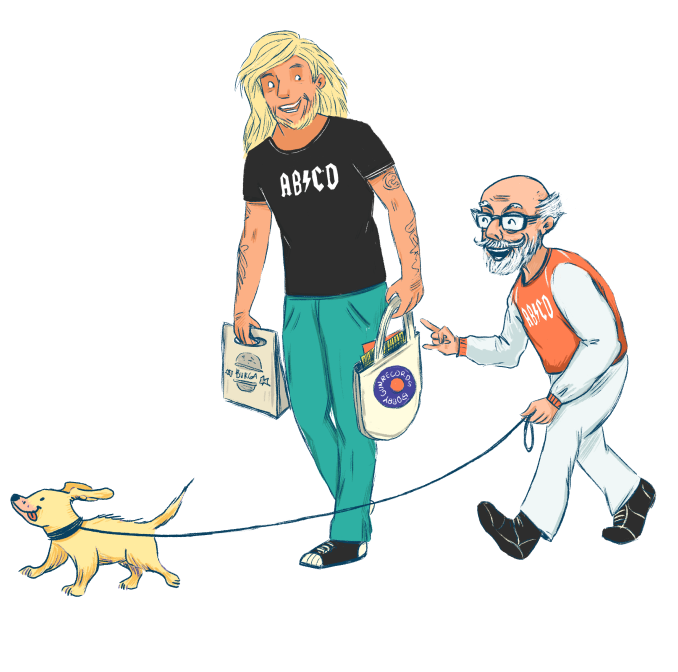How to encourage an active lifestyle

As we get older, it’s natural to become more sedentary and settled into home life. However, we know that when people are socially and physically active, they’ll live longer, healthier, and happier lives.
If you notice that your parents or loved ones are getting out and about less, it may be time to step in and encourage them. Here are our favourite tips to encourage our older family and friends to get out and about.
1. Lead by example
The best way to encourage your loved ones to get out and about is to stay active yourself! If you make a point of prioritising your own health, you’re more than likely to encourage them along the way.
It also means you can get active together – even if it’s simply through the incidental exercise that comes with walking to your local café.
2. Encourage them to pursue the activities they like
If your loved one hasn’t shown an interest in the gym before, chances are they won’t rush into joining one now. Other options they may be more inclined to try are Pilates, Yoga, Tai Chi or even dance classes that are tailored for seniors.
If they’re always talking about how much they loved a bike ride, or how they’ve missed hiking or playing a round of golf, suggest they get back out there and give it a go again.
3. Try a new activity like strength training or yoga
It’s always easy to stick to something you’ve done before. But perhaps your loved one needs to try something new that they might enjoy.
For example, strength training and yoga are both excellent for helping you grow stronger, maintaining good blood circulation and reducing blood pressure.
There are lots of dedicated seniors classes that can help your loved one learn these new activities safely with like-minded people.
Read more about the importance of fitness as we age.
4. Walking is always a winner
Whenever it’s realistic, encourage walking to get from A to B. These don’t have to be long distances, but every bit adds up.
There may be walking groups in their area that you can encourage them to sign up for. Often it’s more enjoyable and motivating when you’re exercising with friends.
5. Suggest volunteering
There are few better ways to engage with the community and get out of the house than volunteering for a cause that you are passionate about.
You could suggest working in a charity store, helping at an animal shelter or even teaching scripture or ethics at a local school.
If it’s a charity or organisation nearby that can be accessed by walking, even better!
6. Consider getting a pet
The health benefits that pets bring to humans have been widely researched. Scientific studies show that spending time with pets can produce significant physical and emotional responses including reducing blood pressure, stress and providing a sense of purpose.
This is especially true for older people living independently. Read more about the benefits of pet ownership later in life.
7. Practise positivity
Whether you’re getting active with your parents or encouraging them to do so on their own, point out the positives. Do they seem happier or sleep better after a round of exercise? Did they not stop talking about how good it was to visit a friend recently?
Once they remember how good it makes them feel, it’ll put an extra spring in their step. They’ll feel more inclined to get out and about more.
If your loved one has issues with mobility, they may need the support of an allied health professional. However, if they’re not facing any major physical difficulties at the moment, then a little encouragement can go a long way to help them stay active well into their later years.
Staying active and connected to friends and community positively affects wellbeing. It’s OK to slow down, but make sure your loved ones maintain activities that will keep them stimulated and engaged. Family and friends can play a crucial role in achieving this
